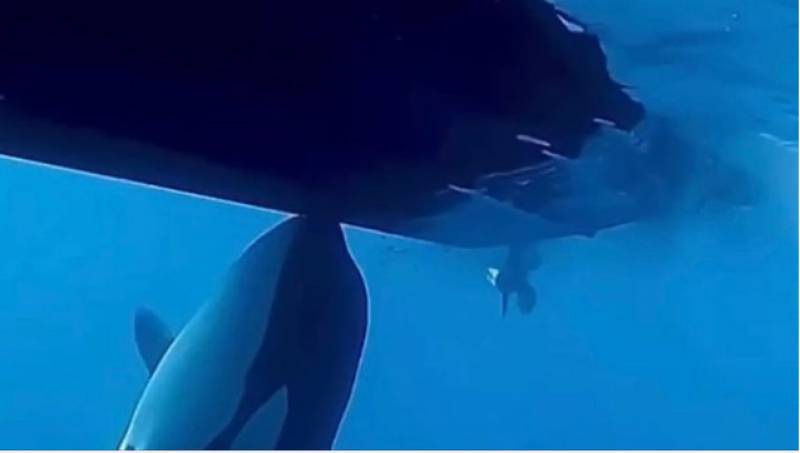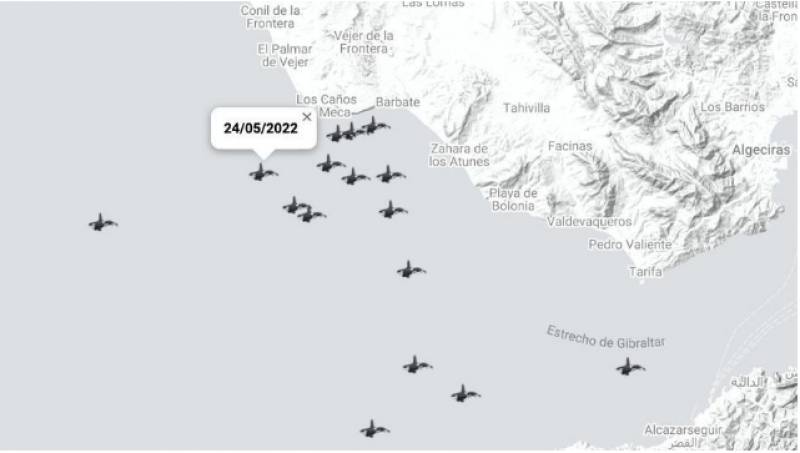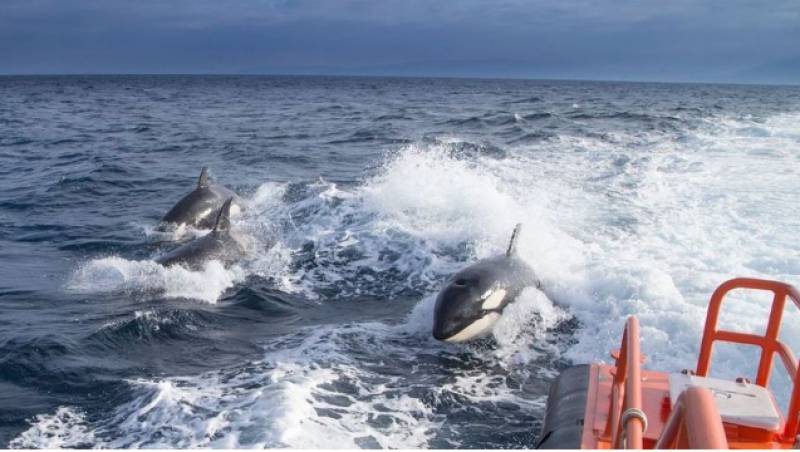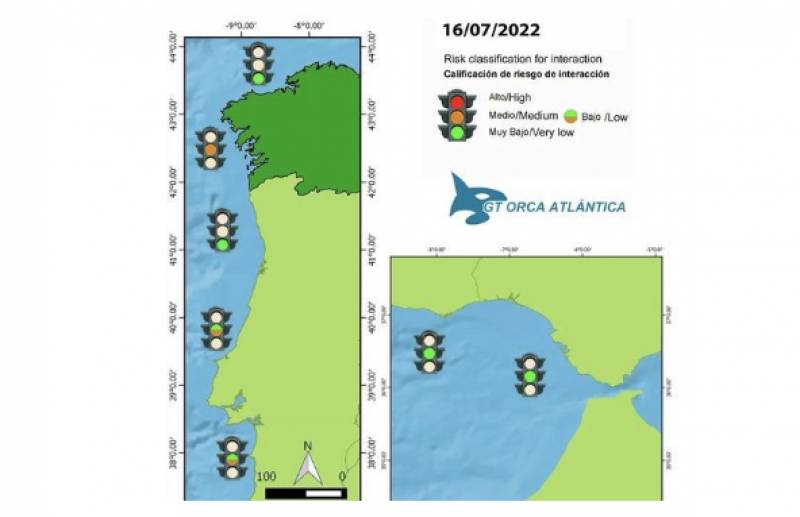article_detail
Date Published: 03/08/2022
ARCHIVED - Orca attacks on boats in Spain are only going to get worse, say scientists
Prior to 2020, killer whale sightings were virtually unheard of in the Atlantic waters of the Strait

In the summer of 2020, marine experts noticed a startling increase in the number of encounters between fishing boats and killer whales along the Atlantic coast of Spain, where “animals without apparent motivation approach the ships, mainly hitting and turning the rudders.”
In just one year, 236 interactions were reported, 20% of them occurring in the Strait of Gibraltar alone, raising alarm among fishermen. To make some sense out of why these usually peaceful mammals were targeting ships, a group of experts published a scientific paper entitled ‘Orcas of the Strait of Gibraltar, an endangered subpopulation showing disruptive behaviour’, a compilation of all the information that has been gathered to date.
What is known so far?

Prior to 2020, whale attacks in Spanish waters were largely unheard of, and even now, the intensity of the assaults vary wildly, according to national group Atlantic Orca, who consider an interaction to be any “contact between an animal and a boat”, which can range from a mere sighting by the crew to physical contact with the boat.
On some occasions, nothing out of the ordinary occurs, but sometimes Maritime Rescue has to intervene and tow a rudderless fishing vessel back to shore.
For this very reason, last summer the authorities banned smaller boats from operating between Cape Trafalgar and Barbate, in order to prevent the situation from escalating.
However, the experts are quick to point out that orcas are not aggressive and that “there has never been an attack or a death” due to an encounter. On the contrary, these cetaceans are “very sociable” animals with “high cognitive capacity”.
More incidents in the future

With this evidence, the paper suggests that adult orcas may be targeting ships simply to teach their young how to hunt tuna. While this might be reassuring on the one hand, the authors have issued a stark warning: “We cannot rule out that more individuals will learn this new behaviour, interacting with the boats, and that the situation will probably get worse.”
Furthermore, they haven’t been able to establish a clear pattern of where and when the interactions between killer whales and boats take place.
“Currently they are happening along the Atlantic coast around Portuguese waters,” the report explains, “but that doesn’t mean there isn’t another group of killer whales in the Strait that we don’t know about.”
The plan

For the time being, the working group is focusing on an action plan for boaters that offers simple instructions in the case of a whale sighting.
“A very basic but fundamental protocol to avoid major incidents,” according to Ezequiel Andréu of the National Working Group for the Atlantic Orca (CTOA), which aims to “disincentivise the stimulation of the animals.”
Essentially, sailors are advised to stop the engine, stay out of the water, turn off any lights and stay away from the rudder. If these guidelines are followed, the experts believe the orcas will lose interest and move on.
In the meantime, far more scientific research is needed to better understand the behaviour of killer whales and implement mitigation measures.
The paper concludes that “if this situation continues or intensifies, it could become a real concern for the safety of the sailor and a conservation problem for this subpopulation of killer whales in danger of extinction.”
Images 1, 2 & 4: Grupo de Trabajo Nacional Orca Atlántica
Image 3: Ministerio de Transportes, Movilidad y Agenda Urbana
Loading
Sign up for the Spanish News Today Editors Roundup Weekly Bulletin and get an email with all the week’s news straight to your inbox
Special offer: Subscribe now for 25% off (36.95 euros for 48 Bulletins)
OR
you can sign up to our FREE weekly roundup!
Read some of our recent bulletins:
Discount Special Offer subscription:
36.95€ for 48 Editor’s Weekly News Roundup bulletins!
Please CLICK THE BUTTON to subscribe.
(List price 3 months 12 Bulletins)
Read more stories from around Spain:
Contact Spanish News Today: Editorial 966 260 896 /
Office 968 018 268























